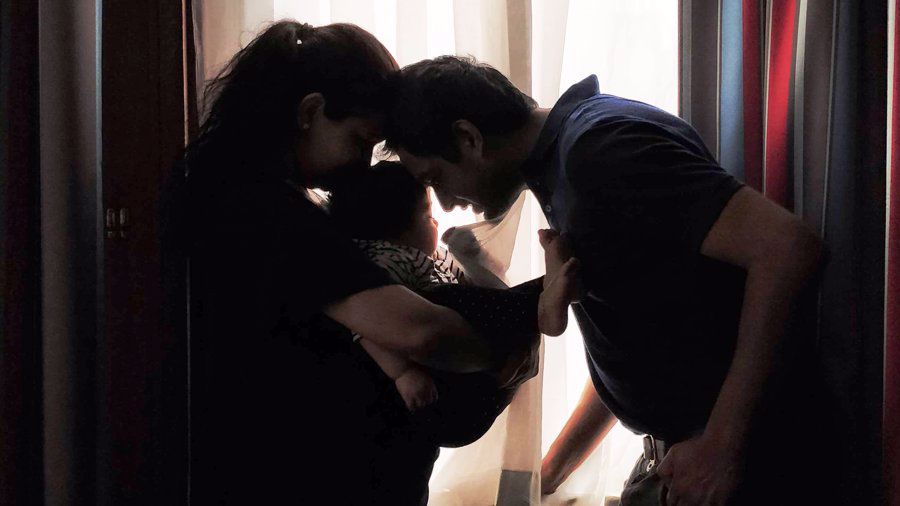Parenting can be a daunting task, but it’s an equally rewarding experience. Every commodity comes with a manual and a new scheme with terms and conditions. Fortunately or unfortunately babies don’t come with any manuals and parenting is a series of trials and errors. Here are my ten commandments of parenting to reduce the errors and hope for a less turbulent path in my parenting journey.

1. Before buying anything you go to comparison sites & choose the best deals right? But please leave it at that! Don't compare your child with others for better or worse. Putting down your child in comparison with others, most would agree - is not cool. But it's equally important not to praise your child relative to others as well. Each child is unique & they are not deals to compare!
2. Parenting is teamwork & both parents should always be on the same side. There might be times where you disagree with your partner, but such discussions should never happen in front of the kid. Kids may use it to their advantage by approaching the parent who is likely to yield to their demands more often. So in front of the kids, it's best to have a united front.
3. An extension of the previous point but would like to reiterate - Don't fight in front of your children, especially not if the topic of the fight is to do with them. This would have a bad impact on them & they may blame themselves for it. Childhood impressions are very strong & negative ones last forever so be watchful of your actions in front of them.
4. Practice what you preach! Before you have sky-high expectations from your child, ensure they are things you would be able to do yourselves. If fulfilling your unachievable dreams is your idea behind having a child, I would say it's a bad idea! I would go back to point number 1, although your child may be 50% you & the other 50% your partner, as 100% he's unique, an individual with abilities, aspirations & aptitude of his own so respect that!
5. Be sure to explain to your child the real consequences of their actions & not a made-up story. For instance, if your child goes into the dark alone & you say there are monsters there, a brave kid might just wait for one & when he sees there isn't, he might continue to go. But if you say when it's dark, you may bump into something & hurt yourself that's more likely to happen. In fact, if the consequences of a situation are not grave, let them experience it. Once they know what could go wrong they are likely to refrain on their own.
6. Don't encourage bad behaviour unknowingly. A lot of times parents tend to laugh at their child's mischief or recite anecdotes of their shenanigans to others in front of the child, not realising this encourages them to continue to do so. Initially, it may seem cute when they are very young or when you are in a good mood, but on your bad day & when they are knee-deep in the habit it gets tougher to curb the behaviour, so establish right in the beginning what's not acceptable.

7. Goodness has to be default! Teaching good manners to children is not like Pavlov's conditioning experiments. Reward & punishment are not ideal to inculcate good habits in children. It gives them the option there, by saying if you are good you get this & if you are bad you get the other. Rather if you make them understand being good is a way of life for the betterment of all it's more likely to last long, else you'll run out of bribes for each time you want him to be well mannered.
8. However, do not forget to appreciate your child from time to time for his good deeds, just ensure it's not a knee jerk reaction to the episode then it will be a reward conditioning. Of course, learning from mistakes is also learning, but discussing off-limits at a neutral time is more yielding, than soon after an incident when you are not in the best of temperaments.
9. When you teach values & principles make sure your motive is to ensure the overall personality development of your child. Don't tell them things like "you do so & so otherwise people will think..." Your child is not here to impress "people". Trying to please everyone is foolish! So remember this for yourself too, when your child misbehaves in public if your main concern is embarrassment, I would say check your priorities! Try to understand why your child is behaving so & help them understand why it's not appropriate rather than worry about others judging you!
10. Communication is key to listen to your child's side of the story first, this may require you to exercise a lot of patience but it's worth it. Children may not understand in their innocence, why a particular incident ticked you off. Even the worst criminals in the court of law are given chance to speak before the judgement, so it's only fair your little lambs are heard before you declare "time-out". Understanding what the fault was & then getting punished is more likely to avoid repetition.
This is in no way an exhaustive list and definitely has scope to add to and will have a part two with 10 more commandments. Until then happy parenting to y’all!







